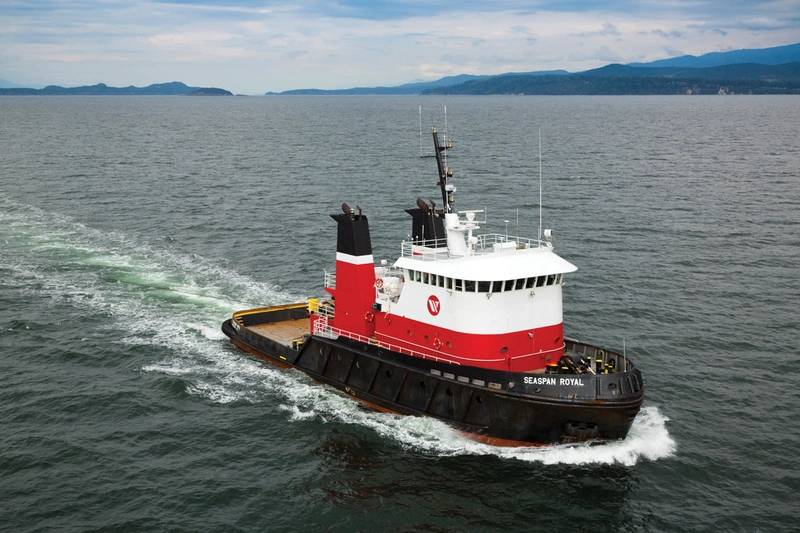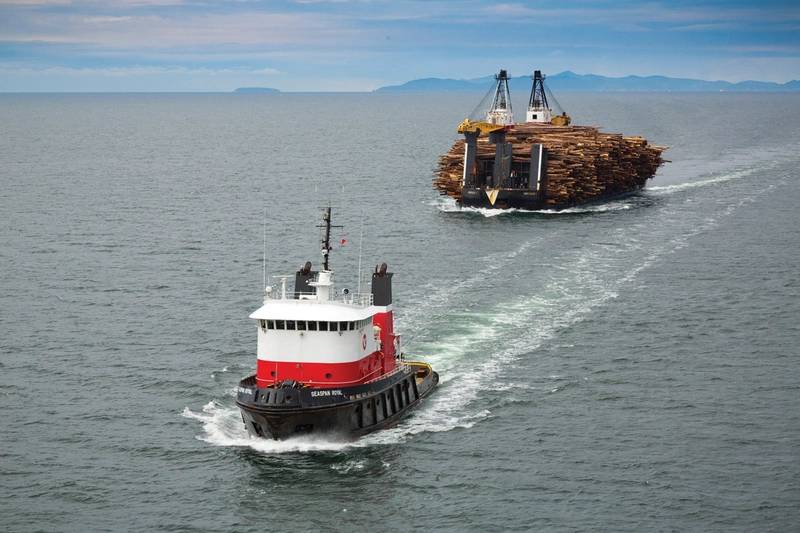Making a Conscious Change: Seaspan Marine’s Conversion to EALs
Vessel fleets face an increasing number of environmentally focused regulations, adding complexity to their operations and creating urgency around compliance.
The U.S. Environmental Protection Agency (EPA), under the Vessel General Permit (VGP), requires that all vessels over 79 feet use an “Environmentally Acceptable Lubricant” (EAL) in oil-to-water interfaces unless technically infeasible. The 2013 VGP revision also requires any above water line hull cleaning or deck wash-downs resulting in discharge to be conducted with “minimally toxic, phosphate-free and biodegradable” cleaners and detergents as defined in the permit.
These regulations are further extended to non-recreational or non-military vessels less than 79 feet in length that are operating as a means of transportation through the recently announced updates to the 2014 Small Vessel General Permit (sVGP). With these announcements, it is becoming more and more apparent that the U.S. is leading the way in the adoption of biodegradable products, such as EALs, in marine applications. For multi-national operators, the country in which they operate that has the most stringent product requirements determines their product selection.
A Move to EAL’s
One such operator that recently addressed its environmental footprint is Seaspan Marine, a marine transportation company serving the west coast of North America, from Mexico to Alaska and the Canadian Arctic. In addition to providing ship docking and ferry services to the ports of Vancouver, Victoria Esquimalt and other British Columbian ports, Seaspan Marine transports forest products, as well as a variety of other cargoes. This cargo is delivered via a large and diverse fleet of tugs and barges specially tailored to move the individual products in a safe, efficient, cost-effective and environmentally responsible manner.
Seaspan Marine’s operations also take them into Washington, Oregon and Alaska. The requirement to be 2013 VGP-compliant prompted the firm to explore the use of EALs in their oil-to-water interfaces. A number of manufacturers approached the company about EALs, so Seaspan Marine looked at all of the major brands to see what would be required for the conversion from their petroleum based oils to EALs. Ultimately, in March 2014, the company decided that RSC Bio Solutions’ products were the best fit for their fleet’s applications.
Horses for Courses: Specific Applications
For the hydraulic system of its barge log-loading machine, Seaspan Marine now uses EnviroLogic 3046, a high performance, readily biodegradable – as defined by OECD 301B or ASTM D7373 – synthetic ISO 46 grade hydraulic fluid. It is intended for severe service, extreme high temperature (250⁰F), low temperature (-40⁰F) and high pressure (5000+psi) applications. For the stern tube applications, the company uses EnviroLogic 3068, a high performance, readily biodegradable, synthetic ISO 68 grade hydraulic fluid. EnviroLogic 3068 is also intended for severe service, and it allows similar oil change intervals and duty cycles in typical propulsion systems.
These products can directly replace petroleum based hydraulic fluids of the same viscosity with no performance tradeoffs—yet they have a reduced environmental impact.
Seaspan Marine considered a number of factors when selecting the RSC Bio Solutions’ EnviroLogic products. The products are fully compliant with the EPA and compatible with a majority of the systems that Seaspan Marine would convert. The company was looking for a minimal amount of cleaning and flushing of the existing systems in order to introduce the use of EALs. With the conversion of a number of older vessels, the ease and timeliness of that conversion was very important.
As these products are critical to marine operations, distribution plays a large part in ensuring that quality, compliant products are available. Seaspan Marine needed a product that would be supported in a location with a readily available supply. RSC Bio Solutions’ products were available in Seattle and eventually will be available in the lower Canadian mainland, as well, making them accessible to the fleet operations.
Beyond Compliance
Seaspan Marine also analyzed the chemistries and properties of their EAL options, wanting a product that would minimize the impact on operations. “Like all marine operators, we’re fairly conservative, and we don’t change easily with systems that are already operating fine to something that may or may not change the performance parameters,” said John Fowlis, vice president, fleet maintenance for Seaspan Marine. “With a boat, you can’t just park it on the side of the road and call somebody. The crew onboard is relying on that machinery for the safe operation of their vessel, and so experimentation has to come in a very measured kind of way.”
The quality of performance is always a concern when switching to a new product, but Seaspan Marine has seen equal or superior performance from the EALs compared to petroleum based products. In fact, they’ve found that the hydraulic system of the log loader was actually running cooler with RSC Bio Solutions’ product, which is a benefit to the life of the machinery in this demanding application.
Based on this quality performance of the loader, Seaspan Marine is now looking to expand the use of RSC Bio Solutions’ hydraulic oil into deck-mounted cranes, anchors and other on-ship machinery applications. They plan to be fully EAL-compliant in their stern tube applications in early 2016, converting the seals and fluids of the impacted vessels as they go through their regular docking cycles.
Seaspan Marine is committed to going beyond mandated requirements in adopting environmentally conscious business practices. The company is a member of Green Marine, a voluntary environmental certification program for the North American marine industry. Additionally, Seaspan Marine is an ISO 14001-accredited company with a continuous improvement quality toward environmental stewardship. This focus demonstrates a dedication to environmental operations and, according to Fowlis, “we will eventually convert our fleet, even the ones that do not go into the United States, to use the best practice oil that we can, in oil-to-water interfaces. We will use EALs, even if we’re not required to.”
Seaspan Marine implemented a thorough evaluation process before selecting RSC Bio Solutions’ products, which was critical to a smooth conversion. Although specific requirements are linked to the needs of the individual fleet, key considerations to be evaluated prior to selecting a readily biodegradable fluid are many, as shown in table 1.
When these considerations are accounted for in the selection process and proper maintenance practices are in place, readily biodegradable lubricants can save marine transportation companies time and money, while further protecting the environments in which they operate.
(As published in the November 2014 edition of Marine News - http://magazines.marinelink.com/Magazines/MaritimeNews)


